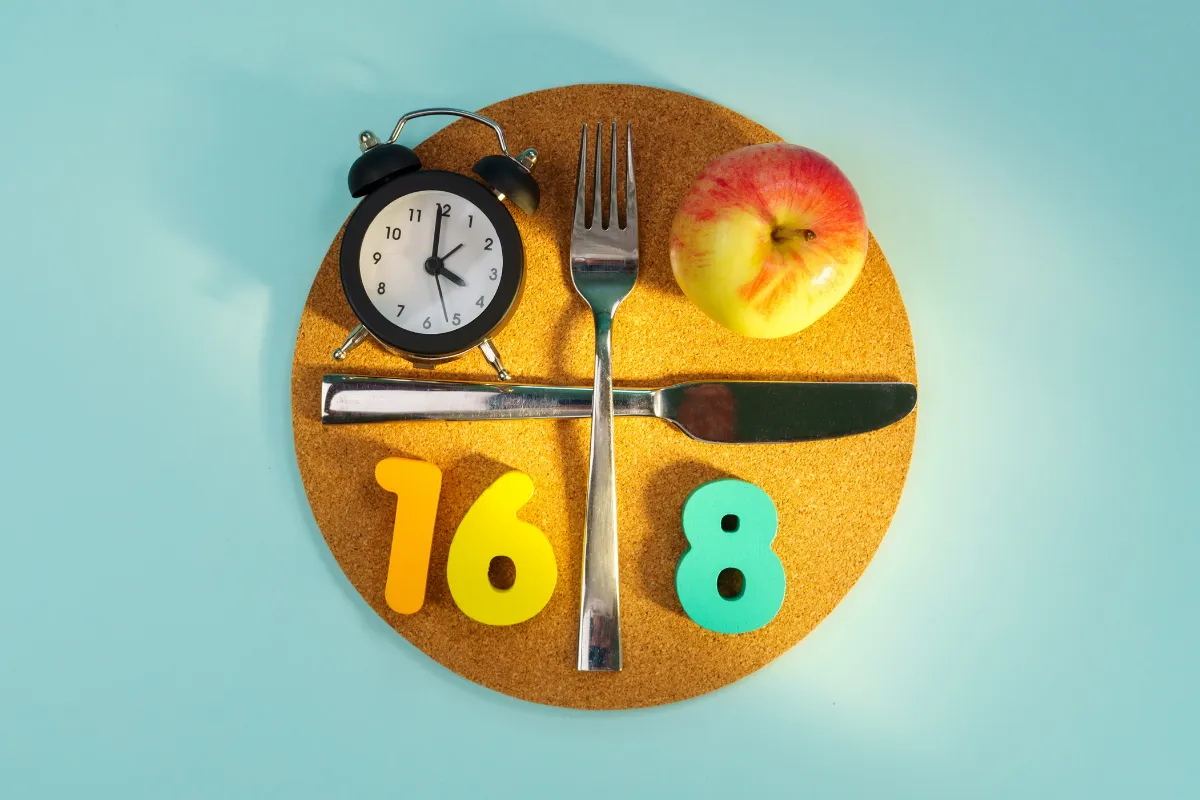
Does Intermittent Fasting Cause Hair Loss? A Comprehensive Guide
Sometimes. Intermittent fasting can be linked to temporary hair shedding when it leads to rapid weight loss, too few calories, or shortfalls in protein, iron, zinc, or other nutrients. Fasting itself doesn’t “damage” hair follicles, but the body may shift hair into a resting phase. Correcting intake and stress usually helps.

Table of Contents
What Intermittent Fasting Is
Intermittent fasting (IF) is an eating pattern that cycles between periods of eating and periods of fasting. It’s often used for weight management, metabolic health, or to simplify meal timing.
Common approaches include:
- 16:8: Fast for 16 hours, then eat within an 8‑hour window.
- 5:2: Eat normally five days per week and significantly reduce calories on two non‑consecutive days.
- Alternate‑day fasting: Alternate normal eating days with days of very low calorie intake.
Can Intermittent Fasting Cause Hair Loss?
Hair loss during IF is usually an indirect effect of how the plan is executed, not fasting itself. When fasting causes a large calorie deficit, rapid weight loss, or a diet that’s low in key nutrients, the body may prioritize essential functions over hair growth.
The most common pattern people notice is diffuse shedding across the scalp rather than patchy bald spots. This is often consistent with telogen effluvium, a temporary shift of more hairs into the shedding phase.

Why Shedding Can Happen During Intermittent Fasting
Low Protein Or Too Few Calories
Hair is largely made of keratin, a protein your body builds from dietary amino acids. If your eating window is small and meals are light, it’s easy to under‑eat protein without realizing it.
A sustained calorie deficit can also signal the body to conserve energy. Over time, that can reduce the resources available for hair growth and contribute to shedding.
Micronutrient Shortfalls
Restrictive eating patterns sometimes crowd out nutrient-dense foods. Low levels of iron (especially low ferritin), zinc, selenium, vitamin D, vitamin B12, and folate have all been linked to weakened hair growth in susceptible people.
Biotin gets a lot of attention, but true biotin deficiency is uncommon. If you’re eating a varied diet, the bigger risks are usually protein, iron, and overall calories.
Rapid Weight Loss And Telogen Effluvium
A fast drop in weight can act as a physical stressor. With telogen effluvium, shedding often starts about 6 to 12 weeks after the trigger rather than immediately.
The good news is that telogen effluvium is typically reversible once the underlying trigger is addressed. Regrowth can take a few months because hair grows slowly.
Stress, Sleep, And Cortisol
Fasting can be smooth for some people and stressful for others. If IF leads to poor sleep, irritability, intense hunger, or overtraining, stress hormones may rise and contribute to shedding.
Stress-related shedding is rarely caused by one factor alone. It often overlaps with under‑eating, nutrient gaps, or other lifestyle changes.

Thyroid And Other Hormonal Factors
Hair growth is sensitive to thyroid function. If IF coincides with symptoms like fatigue, feeling cold, constipation, or menstrual changes, it’s worth discussing thyroid testing with a clinician.
IF can also coincide with existing hair-loss conditions such as androgenetic alopecia (pattern hair loss). In those cases, fasting may not be the root cause, but shedding can make the thinning more noticeable.

Signs Your Shedding Might Be Related To Fasting
These clues are common when calorie intake or nutrition is the main issue:
- More hair than usual in the shower drain, on your pillow, or in your brush.
- Overall thinning or a smaller ponytail circumference, rather than a single bald patch.
- Dry, brittle hair or increased breakage (often from dehydration, low calories, or low fat intake).
- Recent rapid weight loss or a major change in diet timing or calories.
How To Prevent Hair Loss While Practicing Intermittent Fasting
Build Meals Around Protein
Aim to include a solid protein source at each meal in your eating window. Options include eggs, Greek yogurt, poultry, fish, lean meats, tofu, tempeh, lentils, and beans.
If you struggle to meet protein needs in fewer meals, consider a protein-forward snack such as yogurt, cottage cheese, or a smoothie.
Choose Iron- And Zinc-Rich Foods
Iron sources include red meat, poultry, fish, lentils, beans, and leafy greens. Pair plant sources with vitamin C (like citrus or bell peppers) to improve absorption.
Zinc and selenium show up in foods like oysters, beef, pumpkin seeds, chickpeas, eggs, and Brazil nuts. A varied diet usually beats relying on single “superfoods.”

Avoid Aggressive Calorie Deficits
If your goal is fat loss, a moderate deficit is generally easier on hair than drastic restriction. Extreme approaches increase the odds of telogen effluvium and nutrient gaps.
If you’re frequently dizzy, constantly cold, or losing weight faster than intended, consider widening your eating window or increasing calories.

Hydrate And Don’t Skip Healthy Fats
Dehydration can worsen dryness and breakage, even if it doesn’t directly cause follicle-related hair loss. Drink water consistently across the day, especially if you train while fasting.
Include healthy fats such as olive oil, avocado, nuts, seeds, and fatty fish. Adequate fat intake supports hormone production and overall hair and scalp health.

Supplement Only When It Makes Sense
Supplements can help when a deficiency is confirmed or strongly suspected, but they aren’t a shortcut for an unbalanced diet. Too much of certain nutrients can cause problems of its own.
If shedding is significant, ask a clinician about targeted testing (for example: CBC, ferritin, TSH, vitamin D, vitamin B12, and zinc) before starting multiple supplements.

When To Pause Fasting And See A Clinician
Get medical advice if any of the following apply:
- Shedding lasts longer than 3 months or keeps worsening.
- You notice bald patches, scalp pain, heavy itching, or scaling.
- You have symptoms of anemia or thyroid issues (fatigue, shortness of breath, feeling cold, or menstrual changes).
- You’re pregnant, postpartum, or have a history of disordered eating.
- You’re taking medications or have a health condition that could affect hair growth.
A dermatologist or primary care clinician can help identify the pattern and rule out common causes such as iron deficiency, thyroid dysfunction, and inflammatory scalp conditions. That clarity can save months of trial-and-error.

Frequently Asked Questions
Can intermittent fasting cause hair loss?
Yes, if fasting causes rapid weight loss, low calories, or nutrient deficits.
Why does hair thinning happen during intermittent fasting?
Calorie/protein shortfalls and stress shift follicles into telogen, increasing shedding.
Is hair loss from intermittent fasting permanent?
Usually not; telogen effluvium regrows after triggers resolve, though it may take months.
How can you prevent hair loss while intermittent fasting?
Eat enough protein/calories, avoid crash losses, correct iron/vitamin D, and sleep well.
Does intermittent fasting affect hormone levels related to hair growth?
Yes; intermittent fasting changes insulin/IGF-1 and stress hormones, influencing hair cycling.




